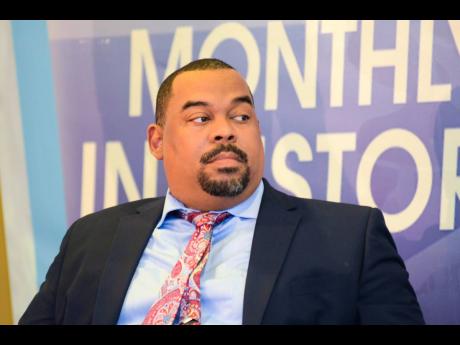Editorial | Fixing sports bodies
Gary Peart’s advice to Jamaican sports bodies to get their accountability regimes in order is sensible and timely.
Indeed, it is an issue to which the Government, perhaps through the G.C. Foster College of Physical Education and/or the University of Technology, Jamaica (UTech), should give attention. As worthy as their proposed intervention is, the situation requires more than what is being offered by the Jamaica Olympic Association (JOA).
Mr Peart is a well-known executive. He is the CEO of the investment and brokerage house Mayberry Investments and executive chairman of the gaming and betting company Supreme Ventures Limited (SVL), in which Mayberry has a major stake.
Last week, he signed an agreement for SVL to provide J$75 million in funding to the JOA over the next five years. One of the reasons SVL supports the JOA, Mr Peart indicated, is that it knows where its money goes. The JOA keeps books and is transparent.
That is not the same for too many Jamaican sporting organisations. And not only with respect to financial accounting. Often, there is little or no adherence to statutes, even if they exist.
These weaknesses make it hard for these associations to attract serious sponsors.
“Without doubt, some sporting bodies are selling themselves short,” Mr Peart told The Gleaner. “Several sporting organisations can’t produce a statement and don’t think it is important. What they are missing is that with those things, they would get significantly more money.”
SIGNIFICANT OBSERVATIONS
Mr Peart’s observations are significant on two fronts. The first is the old complaint that Jamaica does too little to leverage opportunities to earn from sports. And not only with respect to track athletics in which it is a global powerhouse.
The most recent debate on this score was over the Government’s failure to bid for the island to host matches in this summer’s Cricket World Cup (CWC), to be played in the West Indies and the USA. The Government said that it was not satisfied with the projected returns on spending over J$400 million. Critics claim that not only did the Government get its sums wrong, but that its decision was short-sighted.
The Cricket World Cup issue was followed by the contretemps over the decision by the owners of the Jamaica Tallawahs to surrender the Caribbean Premier League’s (CPL) T20 competition franchise, ostensibly because of a lack of government economic support.
This, however, involves a for-profit business entity, which, despite being officially based in Jamaica and includes Jamaican players on its roster, had not played a home match in three seasons. In the event, neither the Jamaica Tallawahs management nor the Jamaican Government provided transparent accounting of taxpayers’ support for the team.
Nor was there a robust analysis, other than uninterrogated declarations by its management, of the team’s contribution to the national economy.
Which, in part, is the second issue to which Mr Peart alluded, although support for a private, profit-driven entity is not necessarily equivalent to the Government and/or corporate entities putting money in sporting associations – and in some cases private ventures – that generate national goods.
The society benefits from a sense of well-being when national teams, mustered by these associations, do well against international counterparts. Everyone gains, too, when individuals and teams play in domestic competitions that allow people the opportunity for recreation, and, through sport, the possibility of the society for re-creation.
But domestic sports organisations are not self-sustaining institutions. They depend, substantially, on funding from the Government and corporate sponsors to finance their programmes and competitions.
That, as Mr Peart said, comes with an obligation of accountability and commitment to processes, which are too often lacking.
‘FIT AND PROPER’ QUALIFICATIONS
Indeed, even now the Jamaica Table Tennis Association (JTTA) is yet to hold an annual general meeting, postponed since last year while protagonists argued over the financial status of affiliates, the state of the association accounts, and a perception that office-holders were intent on clinging to positions.
Before that, for over a year, between 2020 and early 2021, the JTTA, under previous leaders, was in turmoil over governance and financial accounting issues. At one point these had to be resolved by the courts.
In 2014 and 2018, the Jamaica Basketball Association (JBA) engaged in internal fights over leadership and the postponement of the annual general meetings because of some members’ disaffection with the quality of JBA’s financial accounts.
It is not, however, only the smaller associations that have faced problems with their governance and financial accounting. For instance, the world football organisation,FIFA, indirectly intervened in the Jamaica Football Federation (JFF) to overhaul its accounts and put in new governance arrangements so as to widen the constituencies that choose its leaders. The Jamaica Cricket Association (JCA) has also had its fair share of problems.
Mr Peart has suggested the need for “fit and proper” qualifications for sports leaders, including the ability to appropriately handle finances. Christopher Samuda, the JOA’s president, intends to help sporting organisations to strengthen their administrative and financial structures. It would be better if short, formal programmes for leaders of sports organisations are developed and delivered by G.C. Foster and UTech and made obligatory for bodies that seek taxpayers’ support. It might also be a clause in the contracts of corporate sponsors.

